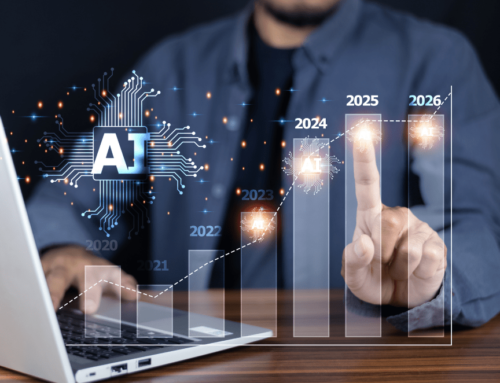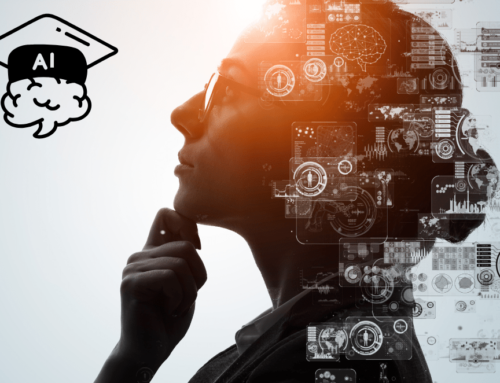Artificial intelligence (AI) is transforming software development and operations, ushering in a new era of unprecedented speed, innovation, and enhanced efficiency. AI-Driven DevOps, often referred to as AIOps, brings transformative changes, enhancing efficiency, accuracy, and innovation across development and operational workflows. At LABAAP (Latin America Business Application and Assistance Provider), we believe in harnessing the power of AI to optimize DevOps processes, ensuring that our clients stay ahead in the competitive tech industry. This blog delves into how AI-driven DevOps is reshaping software development and operations, highlighting key benefits, applications, and future prospects.
Understanding AI-Driven DevOps
DevOps, a blend of “development” and “operations,” aims to streamline the software delivery process, fostering collaboration between development and IT operations teams. By integrating AI into DevOps, we leverage machine learning (ML), predictive analytics, and automation to enhance various stages of the software development lifecycle.
AI-driven DevOps, or AIOps, utilizes intelligent algorithms to analyze vast amounts of data generated by development and operational activities. This analysis helps identify patterns, predict issues, and automate repetitive tasks, ultimately leading to more efficient and reliable software delivery.
Key Benefits of AI-Driven DevOps
- Enhanced Predictive Analytics
AI algorithms can predict potential issues and system failures before they occur. By analyzing historical data and identifying patterns, AI-driven DevOps tools can forecast future anomalies, allowing teams to address problems proactively. This predictive capability minimizes downtime, enhances system reliability, and ensures a seamless user experience.
- Automated Issue Resolution
Traditional DevOps relies on manual intervention to resolve issues, making the process time-consuming and susceptible to human error. AI-driven DevOps automates this process, enabling real-time issue detection and resolution. Automated scripts and workflows can instantly address common problems, reducing the need for manual oversight and speeding up the incident response time.
- Optimized Resource Management
Efficient resource management is crucial for maximizing performance and minimizing costs. AI-driven DevOps tools can dynamically allocate resources based on current demands and predicted future needs. This optimization ensures that systems run smoothly without over-provisioning or under-utilization, leading to cost savings and improved performance.
- Improved Security and Compliance
AI-driven DevOps enhances security by continuously monitoring systems for suspicious activities and potential vulnerabilities. Machine learning models can detect unusual patterns that may indicate security threats, enabling rapid response to mitigate risks. Additionally, AI tools can ensure compliance with industry regulations by automatically auditing systems and flagging any deviations.
- Faster Deployment and Continuous Delivery
AI-driven DevOps enhances the software delivery pipeline by streamlining continuous integration and continuous deployment (CI/CD) processes. Intelligent automation streamlines code testing, integration, and deployment, allowing for faster and more frequent releases. This agility ensures that new features and updates reach users promptly, enhancing customer satisfaction.
Practical Applications of AI-Driven DevOps
- Intelligent Monitoring and Alerting
AI-driven monitoring tools analyze system logs, performance metrics, and user behaviors to detect anomalies in real-time. These tools can differentiate between normal fluctuations and critical issues, reducing false positives and ensuring that teams are alerted only when genuine problems arise.
- Automated Code Reviews
AI can assist in code reviews by automatically identifying potential bugs, code smells, and security vulnerabilities. These automated reviews enhance code quality, reduce technical debt, and ensure that best practices are followed consistently.
- Predictive Maintenance
Predictive maintenance leverages AI to forecast when hardware components or software modules are likely to fail. By proactively replacing or updating these components, organizations can prevent unplanned outages and maintain high system availability.
- ChatOps Integration
ChatOps integrates DevOps processes with messaging platforms, enabling teams to manage tasks and communicate seamlessly. AI-driven ChatOps bots can execute commands, provide real-time updates, and offer insights, making collaboration more efficient and reducing context switching.
- Dynamic Infrastructure Management
AI-driven DevOps tools can dynamically adjust infrastructure configurations based on workload demands. This capability ensures optimal performance during peak times and cost savings during low usage periods, adapting to changing conditions in real time.
Future Prospects of AI-Driven DevOps
The future of AI-driven DevOps is promising, with continuous advancements in AI and ML technologies driving further innovation. Some anticipated developments include:
- Advanced Anomaly Detection
Future AI models will become more adept at detecting subtle anomalies and predicting complex system behaviors. These advancements will enhance the precision of monitoring tools and further reduce false positives.
- Autonomous DevOps Pipelines
Autonomous pipelines will leverage AI to manage the entire DevOps lifecycle with minimal human intervention. These pipelines will handle code integration, testing, deployment, and monitoring autonomously, allowing teams to focus on strategic tasks.
- AI-Augmented Decision Making
AI-driven DevOps will increasingly assist decision-making processes by providing data-driven insights and recommendations. This augmentation will help teams make informed choices about resource allocation, security measures, and performance optimizations.
- Enhanced Collaboration Tools
AI will enhance collaboration tools by providing real-time translations, intelligent summaries, and context-aware suggestions. These features will enable smooth communication and coordination among teams spread across the globe.
- Proactive Cybersecurity Measures
AI-driven DevOps will incorporate advanced cybersecurity measures, including predictive threat modeling and automated incident response. These capabilities will ensure that systems remain secure in the face of evolving cyber threats.
Conclusion
AI-driven DevOps is revolutionizing the way we approach software development and operations. By harnessing the power of AI, organizations can achieve unprecedented levels of efficiency, reliability, and innovation. At LABAAP, we are committed to leveraging AI-driven DevOps to help our clients stay ahead of the curve, delivering high-quality software solutions that meet the demands of the modern digital landscape. As we continue to explore the potential of AI in DevOps, we look forward to a future where intelligent automation and predictive analytics drive the next wave of technological advancements.






